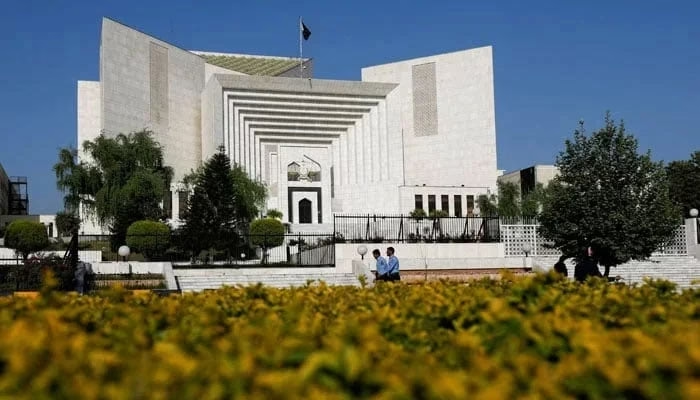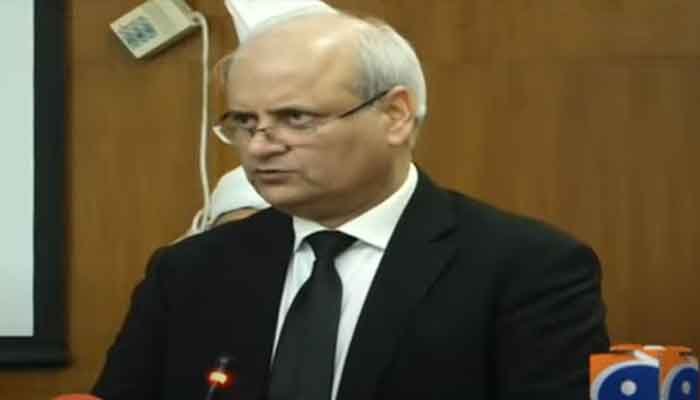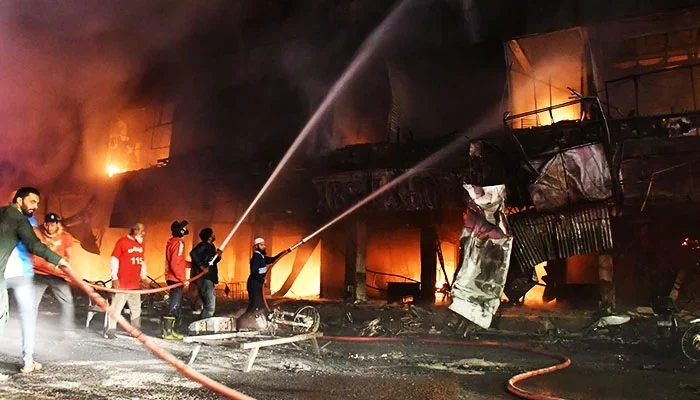The Supreme Court of Pakistan’s constitutional bench has permitted military courts to deliver verdicts in the cases of 85 accused individuals, a decision that remains contingent upon the outcome of a broader case pending before the apex court. The ruling has reignited debates on the legality and scope of military courts under Pakistan’s constitutional framework, particularly in light of their authority to try civilians.
Background: Military Courts Under Scrutiny
The constitutional bench, led by Justice Aminuddin, was hearing intra-court appeals against military court decisions. The session included arguments presented by Khawaja Haris, the Ministry of Defense’s legal representative. At the core of the discussion was whether certain provisions of the Army Act align with Pakistan’s Constitution and whether amendments to the act could potentially bring all individuals, including civilians, under its jurisdiction.
Justice Jamal Mandokhel raised critical questions about the scope of the Army Act, noting, “How can a person who is not in the armed forces be subject to the discipline of the forces?” He emphasized that the Army Act, which predates the 1973 Constitution, was initially designed to maintain the discipline of armed personnel, not civilians.
May 9 Events and Their Impact
The court also examined the relevance of the Army Act to the events of May 9, when violent protests led to attacks on military installations, including the Corps Commander House. Justice Muhammad Ali Mazhar sought clarity on the specifics of the case, stating, “If the case is to be kept only up to the Corps Commander House, then inform us.” The Additional Attorney General assured the bench that detailed reports regarding the incidents had been submitted for review.
Justice Masrat Hilali questioned the fairness of prosecuting individuals under provisions that had been declared null and void, pointing out that convictions under these provisions might result in biased outcomes. She noted, “This would be biased against those accused,” emphasizing the need for judicial impartiality.
The Debate on Fundamental Rights
Justice Mandokhel delved into the broader implications of the Army Act on fundamental rights, arguing that those who voluntarily join the armed forces are aware of the legal framework governing them. However, he underscored that fundamental rights should not be forfeited unless a crime is committed. Khawaja Haris countered by asserting that no one enlists in the military with the intention of breaking the law and losing their constitutional protections.
Key Rulings from the Bench
The constitutional bench, after hearing the arguments, allowed military courts to deliver verdicts for the 85 accused. However, it clarified that:
- The decisions of the military courts will be subject to the Supreme Court’s final ruling on the pending case.
- Accused individuals eligible for reduced sentences should be released.
- Those unable to secure release will be transferred to prisons following sentencing.
The court emphasized that while parties in the case could restrict their arguments to specific issues, the bench retains the authority to examine the broader aspects of the matter.
Broader Implications
This decision has significant implications for Pakistan’s legal and constitutional framework. The trial of civilians in military courts has been a contentious issue, with critics arguing that it undermines the principle of civilian supremacy and fundamental rights. Supporters, however, claim that military courts are necessary to address extraordinary security challenges and ensure swift justice.
Justice Mandokhel’s remarks highlight the tension between upholding fundamental rights and ensuring discipline within the armed forces. His assertion that the Army Act was designed for internal military governance rather than civilian trials underscores the need for a clear delineation of its jurisdiction.
The Road Ahead
The constitutional bench’s decision is not the final word on the matter. By making the military courts’ verdicts contingent upon the Supreme Court’s final ruling, the judiciary has left room for further deliberation. The pending case will likely address broader questions about the Army Act’s compatibility with the Constitution, the scope of military courts, and the protection of fundamental rights.
The court adjourned the hearing until after the winter vacation, signaling that the debate on military courts and their jurisdiction is far from over.
The Supreme Court’s decision to allow military courts to proceed with verdicts, albeit provisionally, has reignited critical debates on constitutional rights, civilian oversight, and the role of military courts in Pakistan’s legal system. As the nation awaits the final verdict, the ruling underscores the judiciary’s delicate balancing act between upholding the Constitution and addressing national security concerns.



